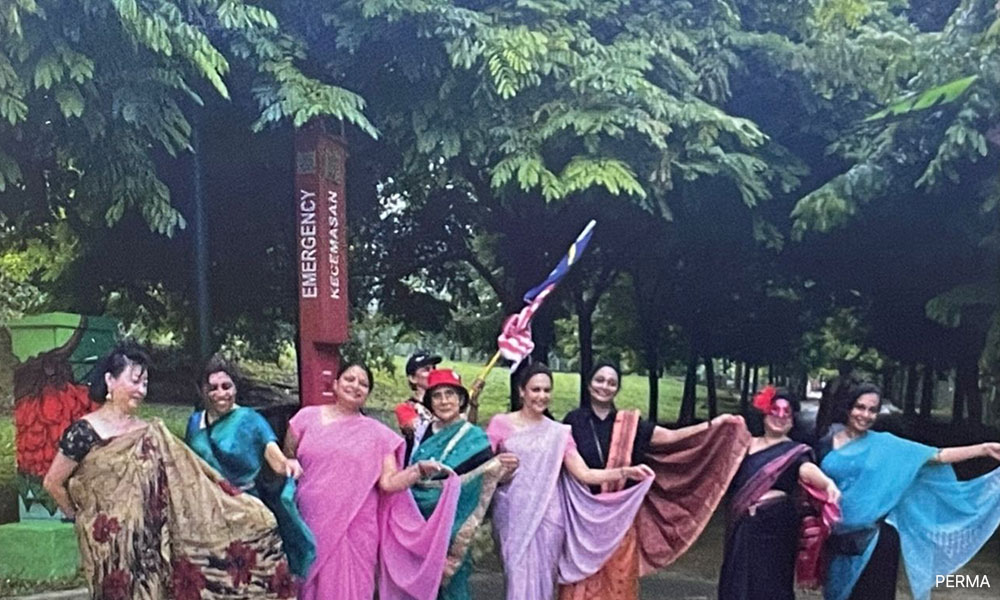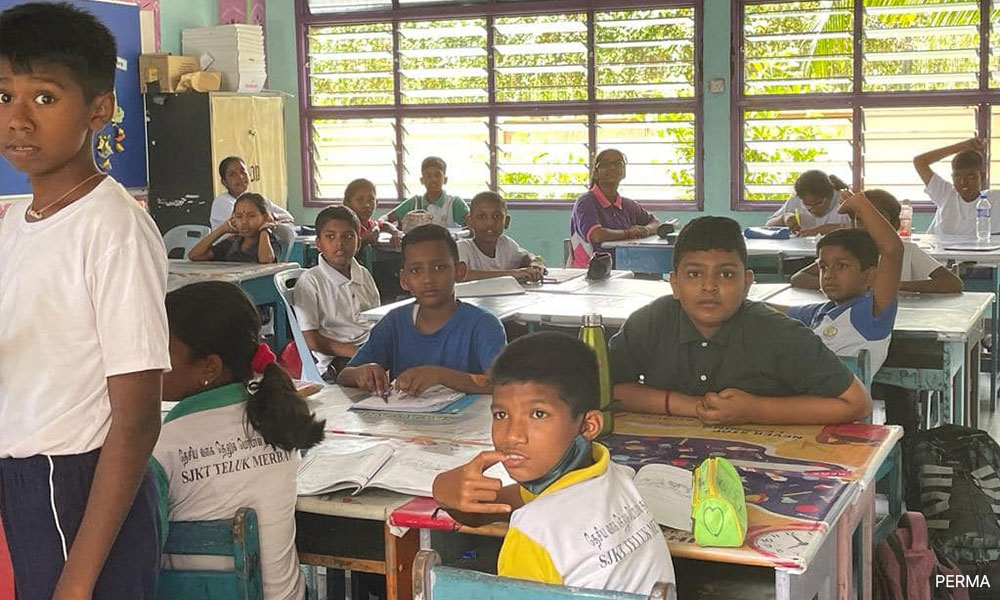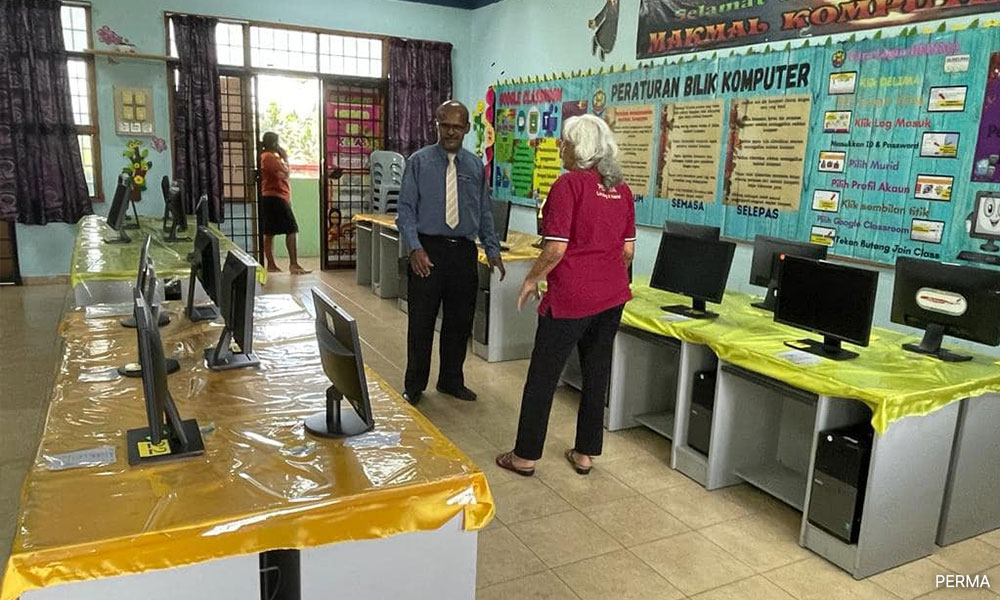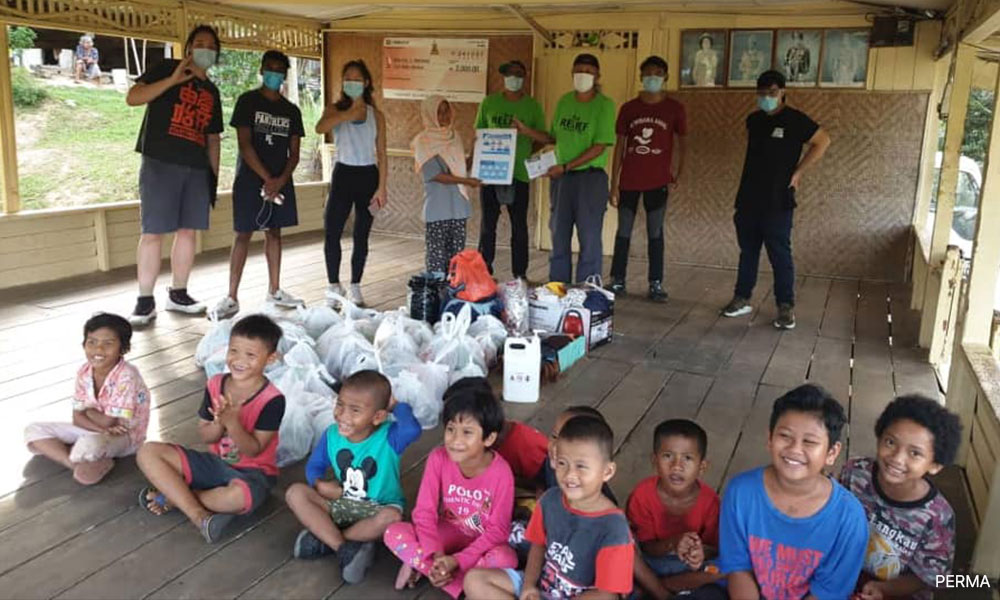Recently the Persekutuan Perkhidmatan Masyarakat Ceylonese Selangor dan Wilayah Perseketuan (Perma) movement has been making waves through creative fundraisers that see men and women running in traditional Indian attire.
Perma organised its inaugural Saree Run in Kuala Lumpur in 2020 and this has since expanded to include men for the Saree and Veshti Runs and Walkathon - held in Bukit Damansara and Lake Gardens in Kuala Lumpur, as well as Penang.

While the fundraiser ideas may have a novelty factor, the cause behind it is a very serious one.
“The money raised was over RM100,000 in the last three recent events. The proceeds will go towards providing tablets for B40 students to help ensure they are able to continue with their education.
“We try to supply computers, smart TVs, and in some cases, uniforms, books, and shoes,” Perma secretary Indira Somasundram told Malaysiakini.
She said Perma got its start in 1976 as a community-based movement, organised among the Ceylonese Tamil community but had since expanded its work.
“Perma started with the simple idea of doing something for the community at large. Around 20 years ago, we got involved in helping Tamil schools.
“According to figures kept by the schools themselves, some 70 to 80 percent of Tamil school students may fall under the B40 category,” she said.
“The school will provide a list based on what the Welfare Department says and we end up contributing not just to the student but to the family around them.
“For now, we are focused on primary schools but, moving forward, we are planning to look at skills development and possible vocations,” Indira added.
While acknowledging that vernacular schools have unique challenges, Perma vice-president Nathan Kandappar pointed out that Tamil schools sometimes suffer from an unfairly negative perception.
“The schools we work with are well managed. The staff is very dedicated, and many of the children are engaged and motivated.
“Most of the schools also have active Parents-Teachers Associations (PTA) and thanks to support from the public, it is very heartening to see Tamil schools uplifted,” said Nathan.

Indira highlighted that all funds collected are strictly used for Perma’s work – which goes towards helping the children.
“We have no office, no remuneration, everything is strictly on a volunteer basis,” she said.
On that note, Indira said it is very heartening to witness success stories from the programme.
“There are two girls who struggled financially and we supported them in their university studies. Now they are qualified accountants and doing well.
“One boy had financial difficulties, we gave him a computer and now he has entered medical university.
“So a little kindness and assistance, at the right time, do make a big difference in their lives,” she said.
Scale of projects
Among its projects, Perma is working on a fund to provide monthly allowances for 13 underprivileged students to study at a vocational training centre.
Some 40 tablets were given to students at Tamil primary schools in Banting, Kapar, Kuala Selangor, and Sungai Besi. There was breakfast sponsorship for students in Dengkil and sponsored tuition in Rawang, which involves extra courses and breakfast.
Perma said its work involved seven schools, but last year, the number went up between 12 and 15 in the aftermath of the pandemic.

“When it comes to technology, we support all students, but if it is uniforms, shoes, and meals - we try to help those from B40 households,” said Indira.
She said Tamil school enrolment can be about 700 in the cities but further away, the school size may be only 80-100 students.
“Our contribution starts at a basic level. The education system is still not geared towards vocational studies.

“It is hard for us to fight against what exists on a bigger scale.
“Hence, we try and support the work with motivational courses and cash awards. The goal is to keep the students engaged,” said Indira.
In dealing with stigmas surrounding Tamil schools, Perma committee member Vimala Sivanoli said early intervention makes a big difference when it comes to the perception that the schools are linked to gangsterism.
“We start working with the children at a young age in primary school. Many of the social ills and naughtiness usually start at the secondary level.
“Sometimes when they enter the mainstream secondary education system, they feel marginalised and bullied and if you don’t fit into the general programme - that can be a problem.
“We work to show them there is support from an early age,” said Vimala.
Perma’s work is not limited to one community or just Tamil schools.

“In 2021, we did work with refugee children. It is across the board. Orang Asli children, flood victims in Johor, victims of the earthquake in Turkiye and others.
“We are fortunate that there have been no bureaucratic obstacles thus far.
“And we steer away from anything political. Our work is purely to help the kids,” Indira stressed. - Mkini



No comments:
Post a Comment
Note: Only a member of this blog may post a comment.